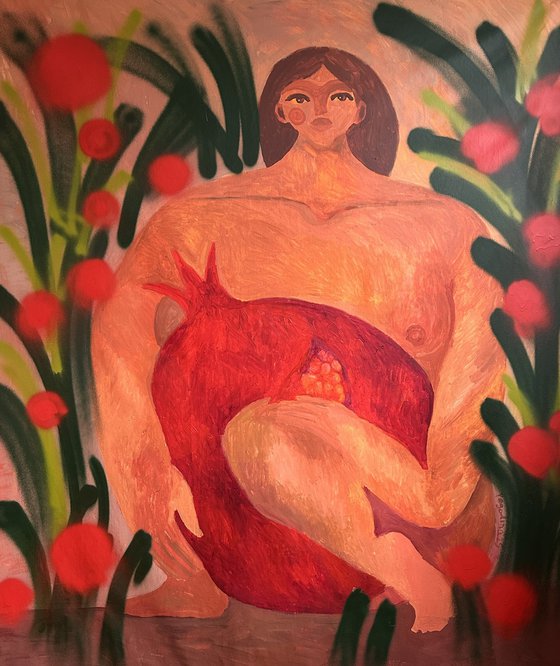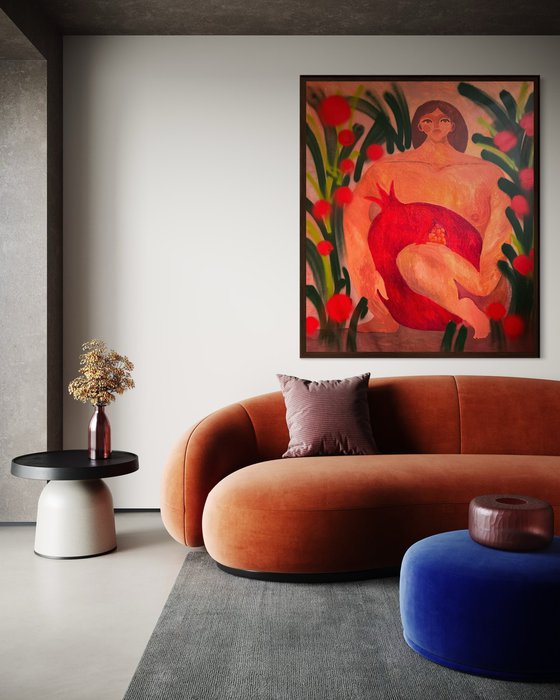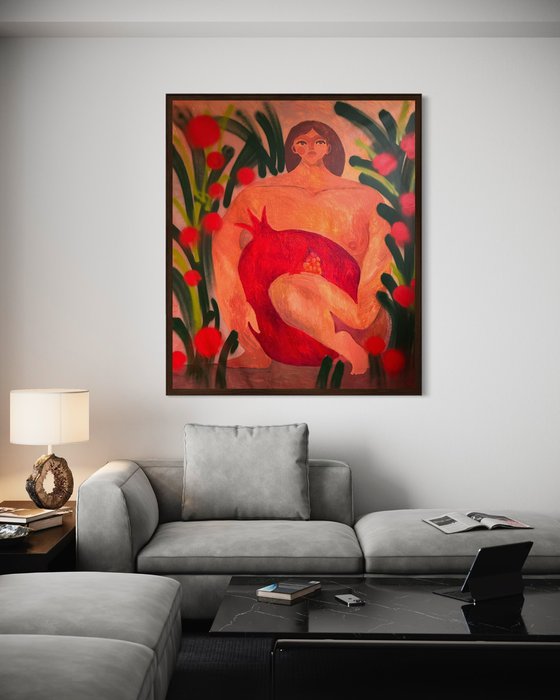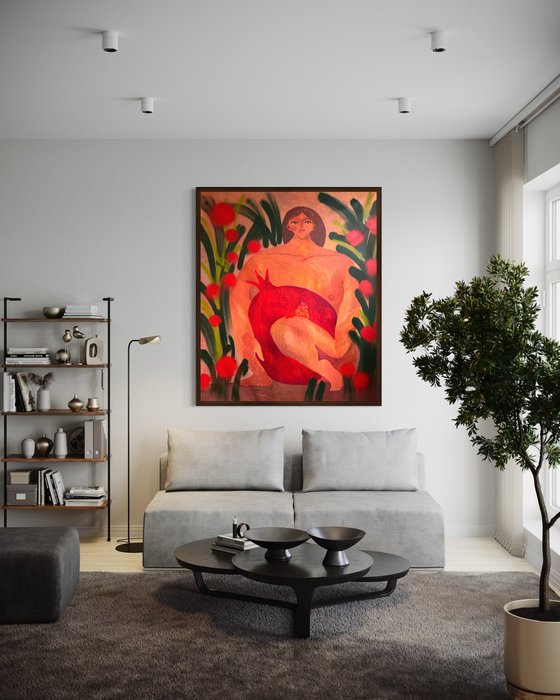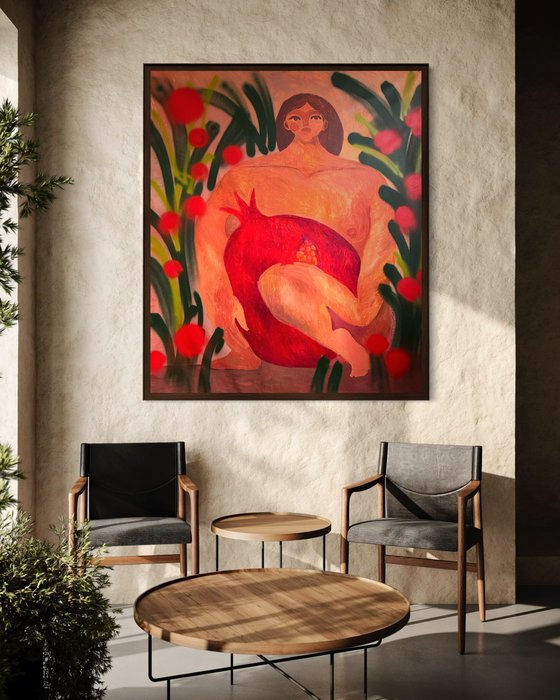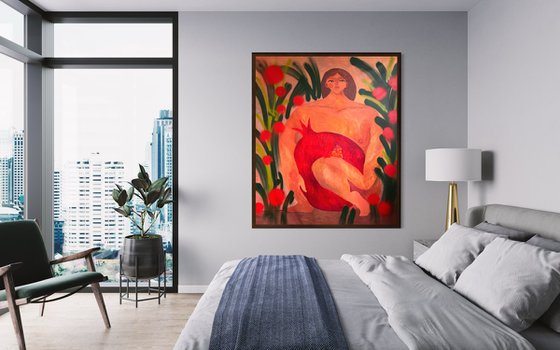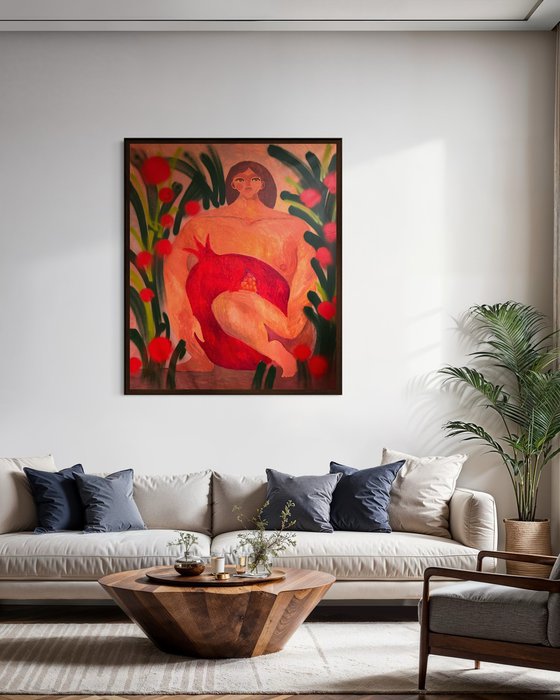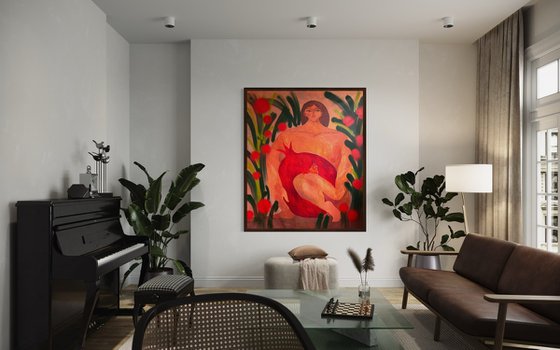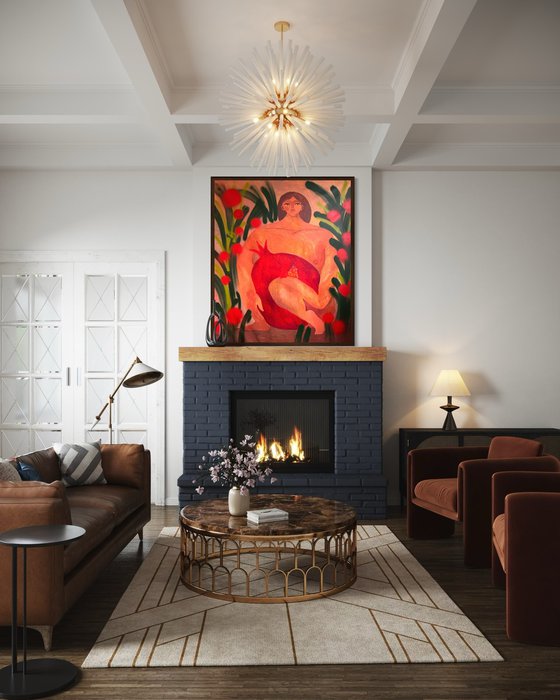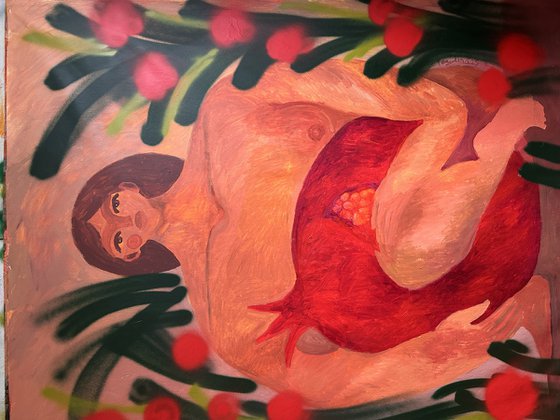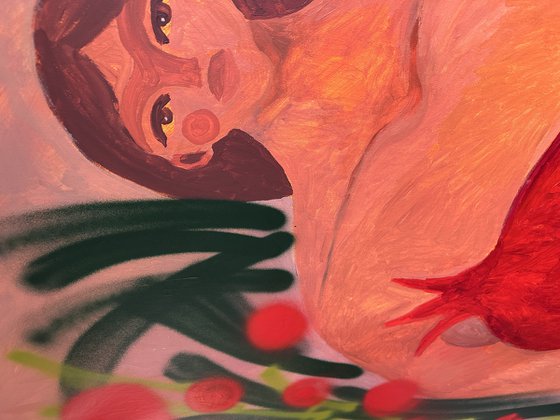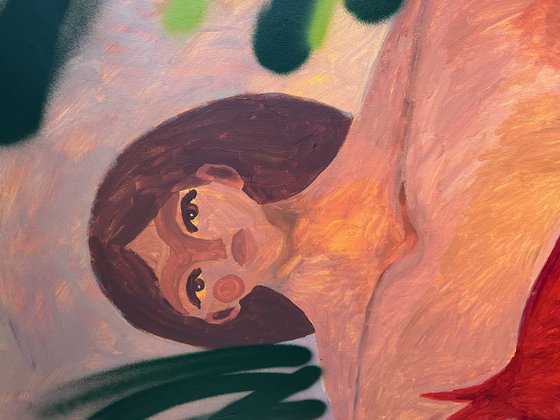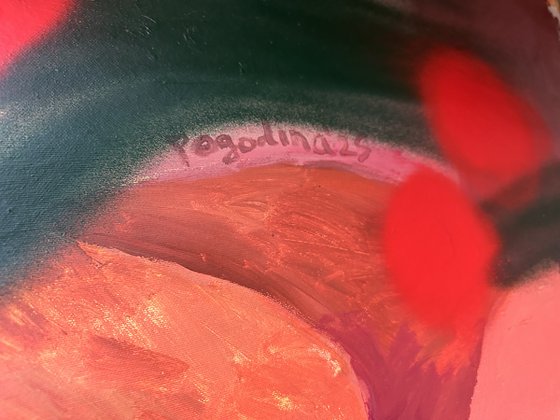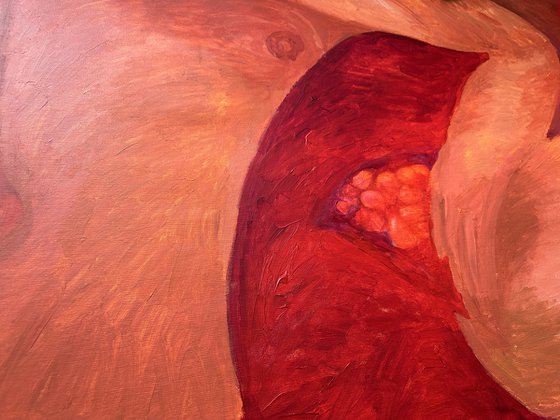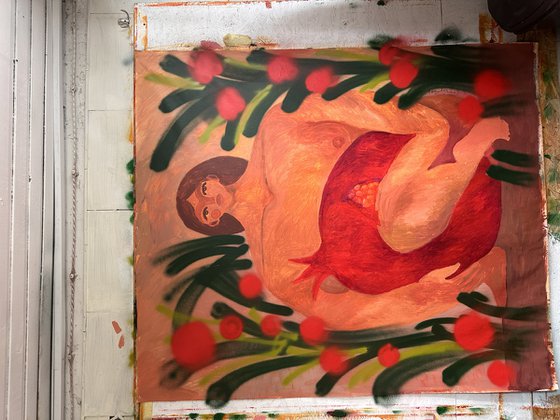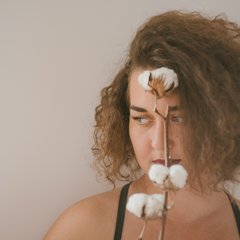Main Navigation
Original artwork description:
ABOUT THE ARTWORK
"The Ovum #1" from the "Perichoresis" series
This work reflects an intimate moment of inner transformation — a turning point in the artist’s dialogue with her body, her fertility, and her faith in the possibility of motherhood. The figure in the painting is portrayed not as passive or waiting, but as a sovereign presence — rooted in her own sensuality and strength.
The pomegranate, split open and echoing the contours of the body, becomes both metaphor and declaration: of ripeness, readiness, and sacred potential. It speaks of the longing to conceive, but also of the deep grief and surrender that precede new life. This is not a painting about resolution — it is about recognition. A recognition of womanhood not as linear fate, but as a cyclical, powerful act of returning to one’s origin.
Through this visual language, the artist transforms a personal diagnosis of infertility into a sacred myth of regeneration, crafting a space where softness and force, desire and doubt, coexist. This painting holds space for those whose path to creation begins not with certainty — but with defiant hope.
PERICHORESIS SERIES
“Perichoresis” (ancient Greek περιχώρησις - “interpenetration”), a theological term meaning the mutual penetration of divine parts into each other, to describe a unique union that does not imply mixing or merging, but emphasizes an indivisible unity.
Daria explores the theme of new sexuality, deliberately choosing a term from theological treatises for her series of works.
With this gesture, she protests against the dictates of religion, the church’s manipulation and pessimization of human sexual manifestations and physicality, the false meanings and concepts with which religions have burdened, and instead of building true connections and bridges for man and God, they build walls.
“Perichoresis” for her is a beautiful and complex term that describes the fusion of the divine and the material. Having grown up in the Protestant tradition within an Orthodox society, Daria notes the common separation of sexuality from divinity in all these religions, while she sees sexuality as the clearest manifestation of divinity, beauty, and sublimity.
The artist notes that Christian culture has invested the image of the female body with a narrative of pornographic tension, while at the same time presenting paradise before the Fall as a sexual paradise, the Garden of earthly pleasures. For the artist, sexual paradise is a safe environment, complete trust, acceptance, the opportunity to open up and discover the Other, the opportunity to learn to be loved and to love.
Love is an environment where merging does not dissolve in another person, but on the contrary, strengthens the individuality of each and enriches each other.
Thus, the artist reminds that the division into the sublime and the low in love is artificial, and overcoming this division can make life more beautiful. The heroes of her paintings are immersed in the enigmatic space of love, and sometimes there are ironic scenes that balance the degree of sublimity.
Materials used:
Acrylic
Tags:
#figurative #girl #woman artworkThe Ovum#1 (2025) Acrylic painting
by Dasha Pogodina
7 Artist Reviews
£1,583.06
- Acrylic painting on Canvas
- One of a kind artwork
- Size: 130 x 150 x 2cm (unframed) / 130 x 150cm (actual image size)
- Signed on the front
- Style: Impressionistic
- Subject: People and portraits
Loading
Original artwork description
ABOUT THE ARTWORK
"The Ovum #1" from the "Perichoresis" series
This work reflects an intimate moment of inner transformation — a turning point in the artist’s dialogue with her body, her fertility, and her faith in the possibility of motherhood. The figure in the painting is portrayed not as passive or waiting, but as a sovereign presence — rooted in her own sensuality and strength.
The pomegranate, split open and echoing the contours of the body, becomes both metaphor and declaration: of ripeness, readiness, and sacred potential. It speaks of the longing to conceive, but also of the deep grief and surrender that precede new life. This is not a painting about resolution — it is about recognition. A recognition of womanhood not as linear fate, but as a cyclical, powerful act of returning to one’s origin.
Through this visual language, the artist transforms a personal diagnosis of infertility into a sacred myth of regeneration, crafting a space where softness and force, desire and doubt, coexist. This painting holds space for those whose path to creation begins not with certainty — but with defiant hope.
PERICHORESIS SERIES
“Perichoresis” (ancient Greek περιχώρησις - “interpenetration”), a theological term meaning the mutual penetration of divine parts into each other, to describe a unique union that does not imply mixing or merging, but emphasizes an indivisible unity.
Daria explores the theme of new sexuality, deliberately choosing a term from theological treatises for her series of works.
With this gesture, she protests against the dictates of religion, the church’s manipulation and pessimization of human sexual manifestations and physicality, the false meanings and concepts with which religions have burdened, and instead of building true connections and bridges for man and God, they build walls.
“Perichoresis” for her is a beautiful and complex term that describes the fusion of the divine and the material. Having grown up in the Protestant tradition within an Orthodox society, Daria notes the common separation of sexuality from divinity in all these religions, while she sees sexuality as the clearest manifestation of divinity, beauty, and sublimity.
The artist notes that Christian culture has invested the image of the female body with a narrative of pornographic tension, while at the same time presenting paradise before the Fall as a sexual paradise, the Garden of earthly pleasures. For the artist, sexual paradise is a safe environment, complete trust, acceptance, the opportunity to open up and discover the Other, the opportunity to learn to be loved and to love.
Love is an environment where merging does not dissolve in another person, but on the contrary, strengthens the individuality of each and enriches each other.
Thus, the artist reminds that the division into the sublime and the low in love is artificial, and overcoming this division can make life more beautiful. The heroes of her paintings are immersed in the enigmatic space of love, and sometimes there are ironic scenes that balance the degree of sublimity.
Materials used:
Acrylic
Tags:
#figurative #girl #woman artwork14 day money back guaranteeLearn more
